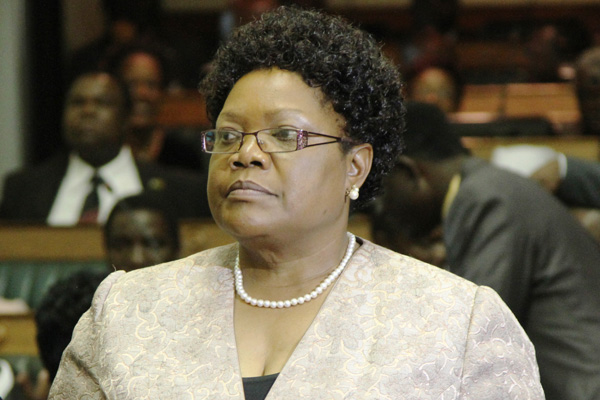
Zanu PF’s expulsion of suspected loyalists of former Vice-President Joice Mujuru is coming at a big cost to the fiscus as the government is compelled to hold by-elections for legislators recalled by the party, analysts say.
BY XOLISANI NCUBE
The ruling party last week resolved to expel two Members of Parliament — Sylvester Nguni (Mhondoro-Mubaira) and Chriswell Mutemasaka (Guruve South) — on allegations that they were working with Mujuru. Zimbabwe has held a series of by-elections since the 2013 elections and most of them were triggered by infighting in Zanu PF and MDC-T.
The highest number of by-elections held in one day was on June 10 when voters in 14 constituencies chose new MPs after MDC-T fired legislators that had demanded the resignation of party leader Morgan Tsvangirai.
Zanu PF has already triggered 12 by-elections and the number could continue to rise as the infighting in the party has not abated.
According to a budget presented by the Zimbabwe Electoral Commission (ZEC) early this year, each by-election requires no less than $2 million to be conducted.
Political analyst, Alexander Rusero said President Robert Mugabe was to blame for the unending by-elections. “As long as the succession issue is not resolved, because it is the source of infighting in Zanu PF, and there is intolerance in the party, we will witness more by-elections emanating from the purging in that party,” Rusero said. “The way the succession issue is being handled has opened room for competitors to plot against each other and in the process cause purging of one faction by the other.
“By-elections are a democratic process unavoidable when there is no political stability in any country and in this case, due to infighting in Zanu PF, it is unavoidable.”
- Chamisa under fire over US$120K donation
- Mavhunga puts DeMbare into Chibuku quarterfinals
- Pension funds bet on Cabora Bassa oilfields
- Councils defy govt fire tender directive
Keep Reading
At least eight by-elections have been held to replace dismissed Zanu PF MPs, or those who have died due to circumstances surrounding the political environment in the ruling party since December last year.
The first by-elections to be held were those to fill vacancies created by the removal of Mujuru from office and the subsequent elevation of Vice-President Emmerson Mnangagwa.
Auxillia Mnangagwa was elected to replace her husband in Chirumanzu-Zibagwe and Barnwell Seremwa took over from Mujuru in Mt Darwin.
After that, two more elections were necessitated by the ouster of former Zanu PF secretary for administration, Didymus Mutasa and his nephew, Temba Mliswa.
Epworth MP Amos Midzi committed suicide after being suspended and removed from his Zanu PF post for allegedly working with Mujuru.
Also, Aquiline Katsande, the ex-Mashonaland East provincial women’s league boss, died after a short illness, with party members alleging that she suffered hypertension due to the manner in which she was kicked out of the party on allegations of working with Mujuru, resulting in a by-election in Mudzi West.
Ex-deputy Environment minister, Simon Mushanhu collapsed at his Harare home and died at a time when he was being investigated within Zanu PF for his alleged links to the Mujuru camp, causing another by-election in his Hwedza North Constituency.
More elections were held to replace Marondera Central MP, Ray Kaukonde and Mbire legislator, David Butau — also accused of supporting Mujuru.
Political analyst, Ernest Mudzengi said as long as political parties were intolerant, the country would remain in election mode until the next general election slated for 2018. “Some of these costs could be avoided but because of intolerance and refusal to engage in succession talks by all the major parties, by-elections will remain with us,” Mudzengi said. “As a country, we need to respect divergent views and learn to appreciate that we are Zimbabweans in our different political understandings. “Political parties ought to understand that intra-party democracy is about respecting divergent views and appreciating that we are people that see things differently.” Opposition parties have been boycotting the elections demanding electoral reforms.











